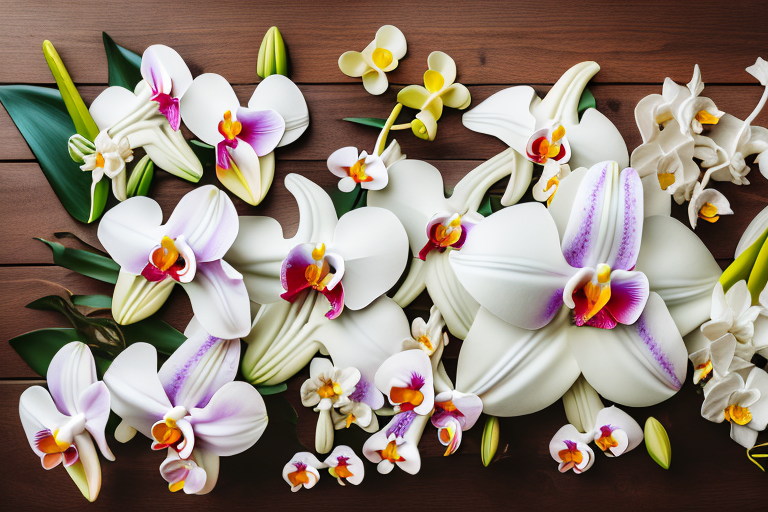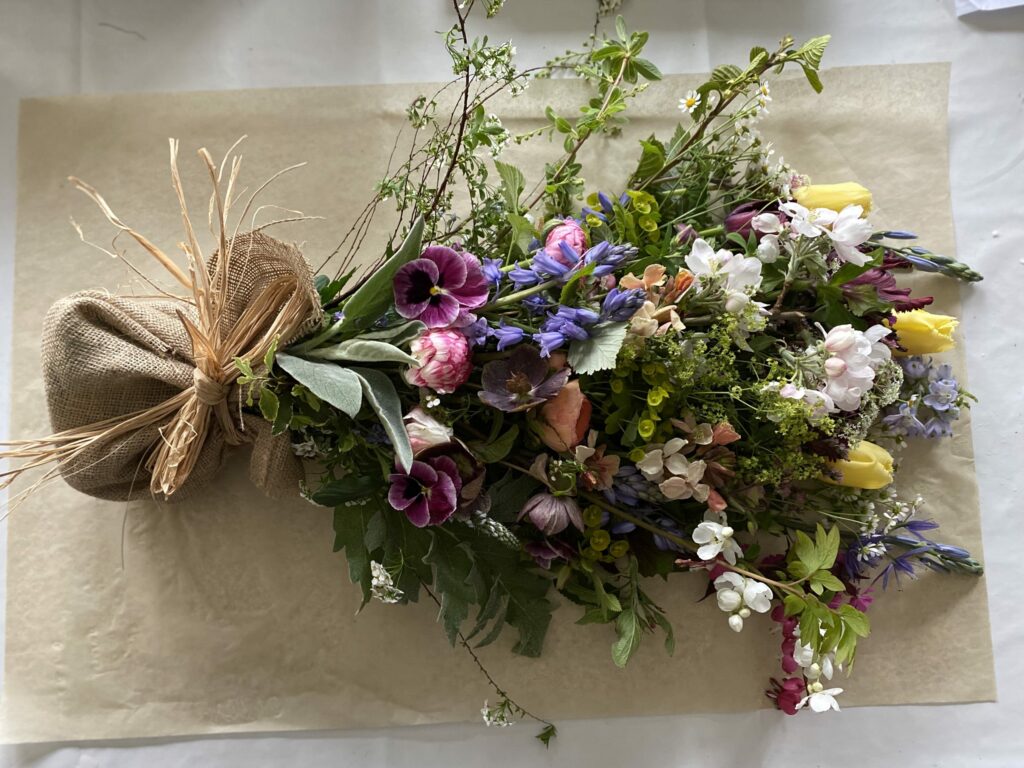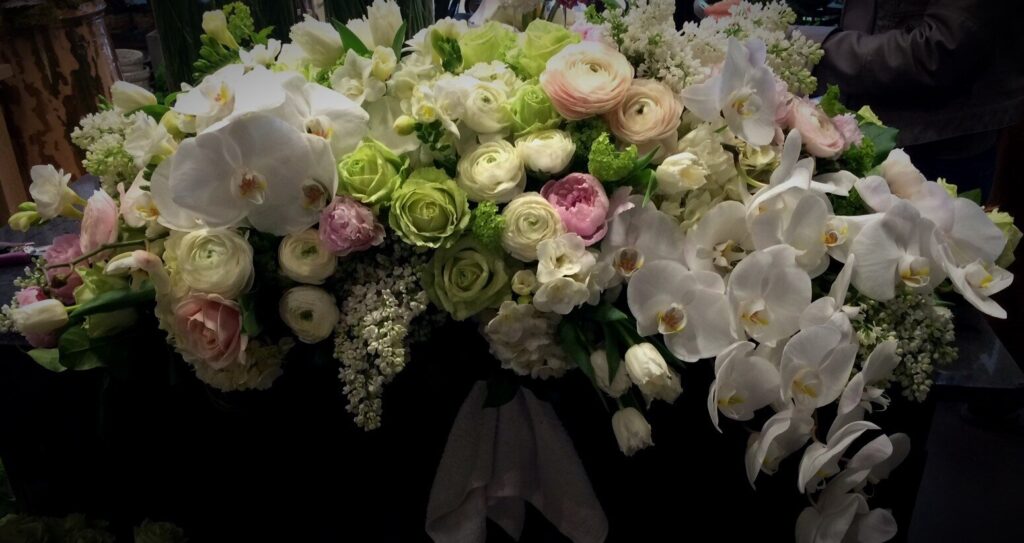Losing a loved one is an incredibly difficult experience that brings forth a myriad of emotions. In times of loss, it is important to find solace and support through various means. Funeral traditions have long played a vital role in helping individuals navigate through the grieving process. One such tradition is the presence of funeral flowers, which hold a significant place in funeral ceremonies across cultures and time.
Understanding the Tradition of Funeral Flowers
Funeral flowers have a rich history that spans centuries. The tradition of adorning the caskets and graves of the departed with flowers dates back to ancient times. These vibrant blooms were seen as a way to honor and remember the deceased, as well as provide comfort to grieving loved ones.
When we delve into the historical significance of funeral flowers delivered Sydney, we find fascinating stories from various ancient civilizations. In ancient Egypt, floral offerings were believed to aid the deceased in their journey to the afterlife. These floral tributes were carefully selected and arranged, symbolizing the cycle of life and death. The Egyptians believed that the fragrance of the flowers would guide the spirits of the departed to their eternal resting place.
Similarly, the Greeks and Romans also embraced the tradition of funeral flowers. They considered these floral tributes essential in honoring the departed and ensuring a peaceful journey into the next realm. In Greek mythology, it was believed that flowers were created by the gods to bring beauty and comfort to the world. The Romans, on the other hand, associated flowers with various gods and goddesses, using them as offerings to seek favor and protection for the deceased.
See Also: How to Choose Wedding Flowers That Complement Your Theme

The Historical Significance of Funeral Flowers
In addition to their symbolic meaning, funeral flowers also played a practical role in ancient times. Before the advent of modern embalming techniques, the scent of flowers helped mask the odor of decomposition, providing a more pleasant environment for mourners during the funeral rites.
As we explore cultural variations in funeral flower traditions, we discover a tapestry of diverse practices. In some Asian cultures, white flowers are prominently used, symbolizing purity and the journey to the afterlife. The delicate petals and serene beauty of white flowers evoke a sense of peace and tranquility, offering solace to grieving families.
In contrast, vibrant and colorful flowers are preferred in Latin American cultures. These cultures view death as a celebration of life and the vibrancy of the departed’s spirit. The use of vivid blooms, such as marigolds, symbolizes joy, love, and remembrance. During the Day of the Dead festivities, families create elaborate altars adorned with an abundance of flowers, candles, and photographs of their loved ones.
Understanding these cultural variations is crucial in choosing the appropriate funeral flowers in different contexts. It allows us to honor the traditions and beliefs of the deceased and their families, providing a meaningful and respectful tribute.
As we reflect on the tradition of funeral flowers, we realize that it is not merely a superficial gesture but a profound expression of love, respect, and remembrance. The beauty and fragrance of these blooms serve as a tangible reminder of the enduring connection between the living and the departed. Funeral flowers continue to be a timeless tradition, bridging the gap between grief and healing, and offering solace in times of loss.
The Symbolism Behind Funeral Flowers
Funeral flowers are not mere embellishments; they carry deep symbolism and meaning. Each type of flower holds its own significance, allowing mourners to express their emotions and pay tribute to the deceased in a heartfelt manner.
When it comes to selecting funeral flowers, it is important to understand the symbolism behind different types of flowers. Roses, with their timeless beauty, are often chosen due to their association with love and affection. The delicate petals of a rose can represent the tenderness and compassion that the mourners feel towards the departed. Lilies, on the other hand, symbolize purity and the restoration of innocence. Their elegant and serene appearance brings a sense of peace and tranquility to the funeral service.
Chrysanthemums, particularly in Asian cultures, convey respect and honor for the departed. These vibrant flowers are often used in funeral arrangements to pay homage to the life lived and the impact the deceased had on others. The chrysanthemum’s vibrant colors and intricate petals serve as a reminder of the beauty that can be found even in times of sorrow.

Different Types of Funeral Flowers and Their Meanings
By selecting specific flowers, mourners can convey their personal sentiments and honor the memory of the one who has passed. Sunflowers, for instance, symbolize adoration and loyalty. Their bright yellow petals bring a ray of sunshine to the somber atmosphere, reminding everyone of the joy and happiness the departed brought into their lives.
Orchids, with their exotic and graceful appearance, represent love, beauty, and strength. These delicate flowers serve as a reminder of the strength and resilience that the deceased possessed, even in the face of adversity. Orchids can also symbolize eternal love and the everlasting bond between the mourners and the departed.
Color Symbolism in Funeral Flowers
Colors play a crucial role in funeral flower arrangements. White flowers symbolize purity, innocence, and peace. They bring a sense of calmness and serenity to the funeral service, providing solace to the grieving family and friends. White roses, in particular, are often used to convey deep sorrow and sympathy.
Red flowers, on the other hand, evoke love and passion. They represent the strong emotions and deep connection that the mourners had with the departed. Red roses are a popular choice for expressing love and admiration for the deceased, as they symbolize the eternal bond that will never fade.
Yellow flowers can represent friendship and joy. They bring a sense of warmth and happiness to the funeral service, reminding everyone of the cherished memories and laughter shared with the departed. Sunflowers, with their vibrant yellow petals, are often used to symbolize friendship and loyalty.
Pink flowers symbolize grace and admiration. They represent the gentle and compassionate nature of the departed, as well as the admiration and respect that the mourners hold for them. Pink roses, in particular, are often used to express gratitude and appreciation for the life lived.
Understanding the symbolism behind different flower colors allows mourners to create arrangements that convey their emotions thoughtfully. By carefully selecting the types and colors of funeral flowers, mourners can create a meaningful tribute to the departed and provide comfort to those who are grieving.
The Role of Funeral Flowers in the Grieving Process
Funeral flowers serve as a powerful means of expressing condolences and supporting those who are grieving. They hold a significant role in honoring the life of the deceased and providing comfort to the bereaved family and friends.
Expressing Condolences and Sympathy Through Flowers
When words fail, funeral flowers speak volumes. Sending floral arrangements to the funeral or memorial service shows support and offers comfort to the bereaved family. These thoughtful gestures remind them that they are not alone in their grief and provide a tangible representation of love and sympathy.
Funeral flowers have a long-standing tradition of expressing condolences and sympathy. The act of sending flowers to a funeral is a way to pay respects to the deceased and show support to the grieving family. The beauty and fragrance of flowers bring solace to the mourners, creating a serene atmosphere amidst the sorrow.
Each flower holds its own symbolic meaning, allowing mourners to convey specific emotions through their choice of blooms. For example, lilies are often associated with purity and innocence, while roses symbolize love and respect. By selecting flowers that hold personal significance, mourners can express their heartfelt condolences in a meaningful and personalized way.

The Therapeutic Impact of Funeral Flowers
Funeral flowers have a therapeutic impact on those who are mourning. The presence of blooms in a somber environment helps create a peaceful atmosphere, providing a sense of solace and healing to those in attendance. The colors and fragrances of flowers can uplift spirits and evoke positive memories, offering a space for reflection and remembrance.
Research has shown that flowers have a positive effect on emotional well-being. The sight and scent of flowers have been found to reduce stress and anxiety, promoting a sense of calmness and relaxation. In the midst of grief, funeral flowers provide a source of comfort and emotional support, helping individuals navigate through the difficult grieving process.
Furthermore, funeral flowers serve as a visual reminder of the beauty and fragility of life. They symbolize the cycle of life and death, offering a gentle reminder that even in times of sorrow, there is still beauty to be found. This symbolism can bring a sense of hope and perspective to those who are grieving, reminding them that life continues to unfold even in the face of loss.
It is important to note that funeral flowers not only provide comfort to the bereaved, but also serve as a tribute to the life of the deceased. The vibrant colors and intricate arrangements celebrate the individuality and uniqueness of the person who has passed away. Funeral flowers honor their memory and serve as a visual representation of the impact they had on the lives of others.
In conclusion, funeral flowers play a vital role in the grieving process. They offer a way to express condolences, provide comfort, and create a therapeutic environment for those who are mourning. Through their beauty and symbolism, funeral flowers serve as a powerful reminder of the enduring love and connection that transcends death.
Choosing the Right Funeral Flowers
When choosing funeral flowers, it is essential to consider various factors to ensure the arrangement is appropriate and meaningful.
Factors to Consider When Selecting Funeral Flowers
Consider the cultural and religious customs surrounding funeral flowers. Pay attention to the preferences and personality of the deceased, as well as the wishes of their family. Additionally, take into account the size and location of the funeral service, ensuring the flowers are suitable for the space and atmosphere.
Popular Funeral Flower Arrangements and Their Significance
Wreaths, crosses, and casket sprays are among the most commonly used funeral flower arrangements. Each holds its own symbolism and significance. Wreaths symbolize eternity and honor, while crosses carry religious connotations. Casket sprays, positioned atop the casket, provide a grand tribute to the departed.
Etiquette for Sending and Receiving Funeral Flowers
Understanding funeral flower etiquette is crucial in ensuring that these gestures are appropriate and well-received.
When and How to Send Funeral Flowers
It is customary to send funeral flowers directly to the funeral home or the location of the memorial service. Flowers should be sent in a timely manner, enabling them to be present for the service. Including a heartfelt note or card offers further comfort and support to the grieving family.
How to Handle and Display Received Funeral Flowers
Upon receiving funeral flowers, it is essential to acknowledge their arrival and express gratitude to the sender. These floral tributes should be displayed with care, creating a respectful and serene environment. After the service, the flowers can be given to the family or repurposed as a meaningful memento of the departed.
Funeral flowers play an integral role in honoring the memory of the deceased and providing solace to the grieving. Understanding the tradition, symbolism, and etiquette surrounding funeral flowers is crucial in navigating this delicate aspect of the grieving process. By embracing this tradition with grace, mourners can find comfort and support in their time of loss.
